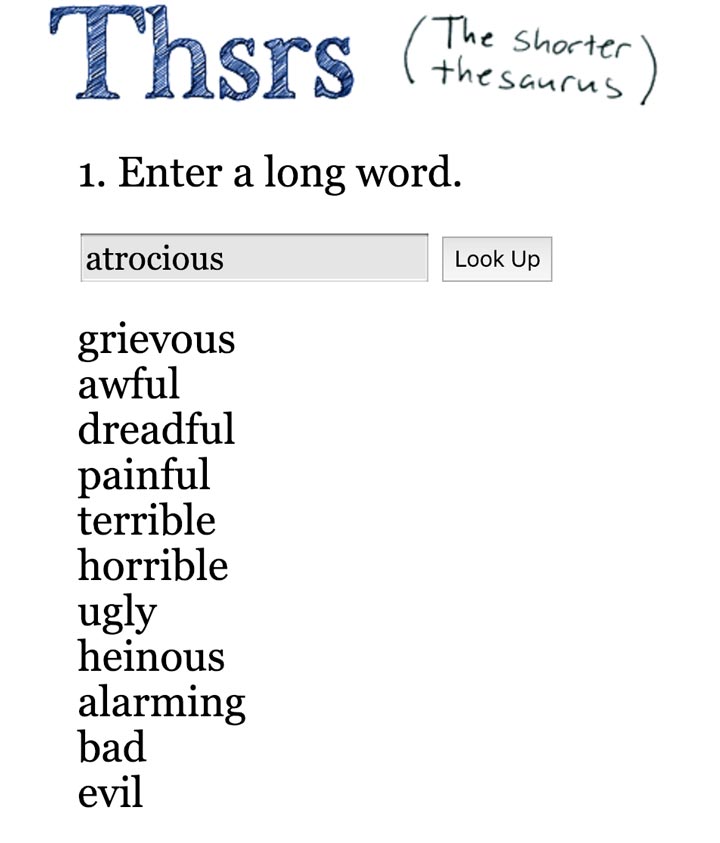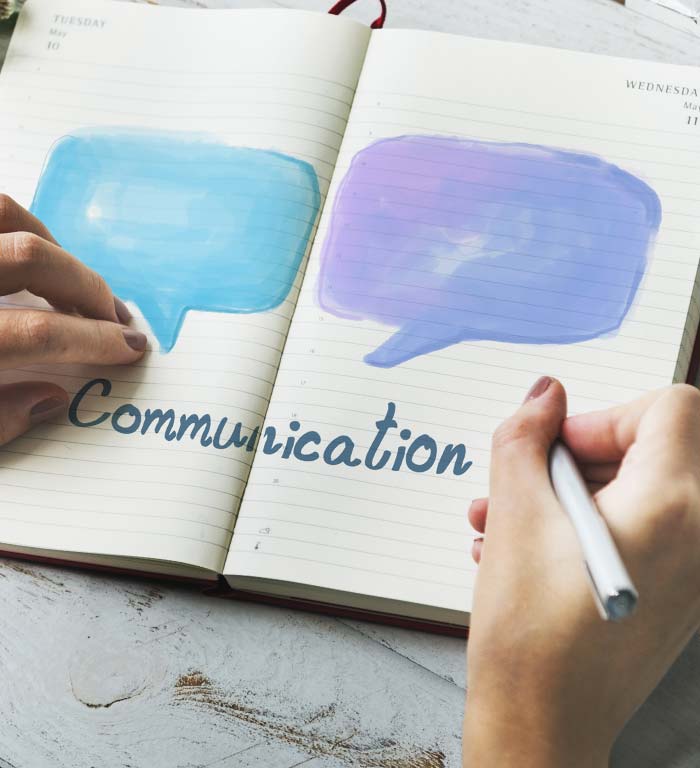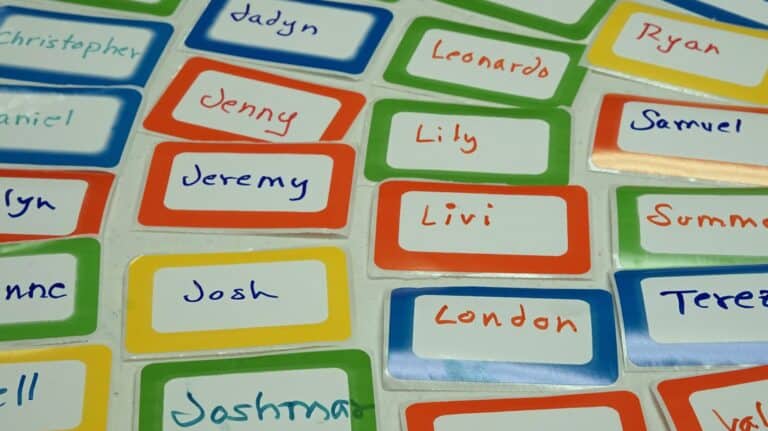We may receive a commission when you make a purchase from one of our links for products and services we recommend. As an Amazon Associate we earn from qualifying purchases. Thank you for support!
Building a strong vocabulary is essential as a writer. The more words you know, the easier it is to write! Today we’ll share some easy things you can do to improve your vocabulary.
Why a Strong Vocabulary is Important for Writers
Before I go into all the different fun ways you can start building your vocabulary, it’s important to understand just exactly it means to have a strong vocabulary. It is also helpful to know why you might want to expand your vocabulary as a writer.
Vocabulary: Words We Use All The Time
Our vocabulary consists of the words we know and use every single day. The words we use regularly are the very foundation for how we communicate with others. When you have a wide variety of different words to choose from, you can strengthen and clarify your message.
Contrary to popular belief, having a large vocabulary doesn’t mean using big, long complicated words that are hard to pronounce and spell. It doesn’t mean using fancy words no has ever heard before. Instead, it’s about choosing words that best communicate and deliver the message.
Consider these examples:
- I went to the store.
- I rode my bicycle to the farmer’s market.
- I pedaled my bike furiously on a quest for fresh apples.
Can you see how the meaning is different in each of these sentences? The words you choose can change the overall style, tone, and meaning of what you write.
Sadly, many people neglect improving vocabulary as an essential writing skill because it just doesn’t sound like much fun to practice or do. This is especially true if you ever had a teacher who made you practice and learn by making you copy words and the definitions out of the dictionary.
Fortunately, there are many ways to improve your vocabulary and many of them are fun. In fact, many of these things you likely even do already each and every day – you just didn’t know they were a fun way to add new words to your vocabulary!
Don’t worry, these activities are not homework!
#1: Play Word Games
Smart teachers know the best way to help kids learn is to disguise learning as a game. There are a lot of great games that can help you learn new words without it feeling like a chore.
Some of my favorite word games of all time include classic board games such as Scrabble, Boggle, Scattegories and Banagrams. Playing games is always fun, and I love the kinds of games that make you ask, “Is that a word? What does that word mean?”






Crossword Puzzles and Word Search puzzles are also always a lot of fun to do. These may not seem as popular today as they once were, but a lot of people still find them fun to do.
There are also a lot of great word games available for smart phones and tablets. These are a great choice for travel or if you are ever stuck waiting somewhere. I am still forever grateful to the woman who sat next to me on an 8 hour bus ride from NYC and introduced me to a word game app by Word Mill Games.
There are so many great word games to consider that can help you build your vocabulary and become a better writer. We may need to write another post in the future solely dedicated to that topic!
#2. Learn the Jargon and Pick Up Some Slang
Jargon is a set of words that are understood primarily only by people in a certain group or industry. For example, doctors have a different vocabulary from accountants. Slang is similar to jargon, but it is used informally and typically in a circle of people who are friends.
When properly implemented and executed, using jargon and slang in your writing can help you build credibility with your audience. This applies for both non-fiction and fiction writing. If you don’t use the right vocabulary people are going to know that you are an imposter.
Browse a Slang Dictionary
There are a number of great slang dictionaries available on Amazon. No matter what topic or interest you like to write about, it’s important to use words that help build trust and authority with your audience.



#3. Practice the Art of Being Concise
Many writers fall in the trap of using the same words all the time in their writing. This can make your writing seem repetitive or even boring. Knowing a lot of different synonyms can make it easy to write for any type of audience.
As a writer, every word you know is a tool in your writing arsenal. It is good to know a lot of words and the different ways words can be used.
One of my favorite websites for learning alternative words to use is the Shorter Thesaurus by IronicSans.
Rather than use a hard to spell and pronounce word like atrocious, we can actually use words like awful, evil, or dreadful. See, it doesn’t have to be painful to learn a new way of saying something!

Using shorter, smaller words can help you clearly convey your message without coming across as boring or repetitive.
#4. Learn the Meaning of Root Words, Suffixes and Prefixes
Recently my 11 year old daughter was learning all about the many different suffixes and prefixes. When we learn about these things in school, we generally don’t really know why we learn them or why it is important. Naturally my daughter wondered why anyone would even want or need to know these things.
It may seem tedious or boring, but there actually IS a very good reason to study up on suffixes and prefixes! When you know the meaning of these suffixes and prefixes, you are able to understand the meaning of a word you might encounter, without necessarily needing to look it up.
Most of the words we use in the English language are created using suffixes and prefixes. When you know the basics of prefixes and suffixes, it can help you understand what a word means without necessarily needing to look it up.
Better yet, it can even help you create new words! A great example of this is The Dictionary of Obscure Sorrows, and is a very fun way to increase your vocabulary AND practice the meaning of different prefixes and suffixes.
#5. Study the History of Words and Language
Etymology is the study of words and their origins. Learning about the origin and history of words can be very fascinating and a great way to learn about the history, customs and cultures in past times.
One of my favorite websites for etymology is the site Etymonline.com. The origins and definitions are very interesting to read about!
Understanding the history of how different words came to be can be very interesting. Often times when I need inspiration for writing, sometimes just looking up the history and origin of the topic can give me some new things to explore!



#6. Be an Artist With Words
Writers in many ways are like artists. Instead of using paint, we create using words. Just as an artist might like to have many different colors of paint to choose from, writers can choose from many different words to express themselves.
Part of being able to use words effectively in your writing is to understand not just the basic meaning and definition of a word, but to also understand the connotation and different ways a word can be used.
If I look at the thesaurus for other words to use for the word red, I see many different words I could use instead. We have all sorts of alternative words to choose from: crimson, scarlet, burgundy, rose, wine, healthy, blushing, glowing, flaming.
However, just because all of these words are synonyms, this does not mean they have the same meaning! The color red also has many different meanings in symbolism. For example, the color red could imply love and romance, or it could mean anger and warning of danger.
One way to have fun with this is to use a sketchbook and draw a picture to illustrate a word or concept. You could also consider taking pictures of different words and concepts.
Finding ways to express your thoughts visually can give you all sorts of new insight into what a word means or different ways it can be used. As the saying goes, one picture is worth a thousand words!



#7. Make Friends With People From Around the World
One of the biggest advantages to writing online and having a website for me is that it has helped me connect with people all around the world. I have friends on nearly every continent.
Learning to communicate with others who do not speak English as their native language is a great way to increase your vocabulary and practice ways to clearly communicate with others.
Here’s a Couple of Ways to Practice Writing World-Wide:
- Learn a New Language
- Get a Pen Pal
- Join International Forums
- Participate in International Facebook Groups
Making friends around the world helps introduce you to new ways of saying things, as well as helps ensure you don’t write in a way that is confusing.
#8. Study Idioms, Expressions and Clichés
One of the things many people will tell you about writing is to avoid using clichés. These expressions, often also known as idioms, are frequently overused. However, when you explore them you can often find they stretch your vocabulary and increase your creativity!
The Free Dictionary Idiom Search is one of my favorite websites which features different idioms and phrases. If I look up the word “bird” for example, I can find a whole list of different phrases, sayings, and meanings.
By using the Idiom dictionary feature, I can learn many new uses for the word bird – it could mean airplane, an odd person, a hundred dollars, or even to describe an insult to some.
While it’s best to come up with your own way of saying things, you can often find a lot of inspiration simply by looking at how different words are used in these sayings and phrases.
#9. Read as Much as You Can
Ever wonder why many established writers tell you to read as much as you can? This is because in reading you can learn many new ways to improve your own writing skills and build your vocabulary.
There are more books on this earth than any of us could ever possibly read in a lifetime, so probably the hardest thing to decide is what to read! However, it doesn’t really matter so much what books you read as it does to read a wide variety.
You can learn a lot just by reading different formats and writing styles. You can benefit just as much from reading cookbooks and magazine articles as you can from reading the literature classics.
Not sure what to read? The Amazon Bestsellers Book List is always a great place to start. You can also explore sites such as OverDrive.com and access thousands of free books to read online – all you need is a library card!
[sc name=”azonbestsellers”]
#10. Write Your Own Dictionary: Keep a Vocabulary Journal
Writing in a journal is another great way to naturally improve your vocabulary. The more you write, the more words you need to use! One way to do this is to make your own dictionary by keeping a vocabulary journal.
Creating a vocabulary journal is very easy to do. Start with a blank notebook and write a word for the day at the top of the page. The word can be one you use all of the time, or it can be a word that you just recently learned. If you’re stuck on choosing a word, open up a random book to a random page and use the first word you see.
Once you have a word, try to create a definition for this word without looking up the meaning. This can be very challenging for words we use all of the time!
How would you explain this word to someone who does not speak the language? How would you explain it to an alien from outer space who has never been to our planet?
Need some inspiration? This list of One Word Journal Prompts is a great way to get started in writing your very own dictionary and learning new words and their meanings.



#11. Practice Free Association and Stream of Consciousness Writing
One of my favorite methods of writing is from a stream of consciousness. Free association in writing means that you simply write whatever you think about, without worrying about how everything connects.
For example, if I start with a random word, I will then think of all the things I associate with that word. Let’s use the word “baseball” as an example.
When I think of baseball, my first thoughts are all of the people who I know who liked the game. I also think of different aspects of the game, such as the outfield, 9 innings, a bat, a ball, first base, second base, a home run.
I also think of an umpire, yelling “Strike Three, You’re Out!” as the player drops his bat into the dirt. Of course, I also think of that classic song mentioning buying peanuts and cracker jacks.
Using free association and simply writing whatever comes to mind first is a great way to consider words and how they relate to one another.
#12. Get in the Habit of Revising and Editing
Lastly, as all publishers and professional writers know, it is important to revise and edit your work. Taking some time to revise and edit your writing can help you ensure you effectively communicate your message with your audience.
If you can, have someone else read your work. Someone who is objective and unbiased will be able to help you spot any areas that may seem confusing, inaccurate, or even boring and repetitive.
You can also learn a lot simply by offering to give feedback to other writers you know. Sometimes when you read someone else’s work it is easier to see room for improvement than when writing your own work.
It can sometimes be brutal when you see how others edit what you write, but it’s often an important part of learning to become a better writer.
Words Are Power: Practical Use of Vocabulary in Every Day Situations
Many people think vocabulary is something limited to school or writing. However, there are many practical, real-life situations where a strong vocabulary is important!
There are many benefits to increasing your vocabulary, even if you are not a professional writer.
Learning to effectively communicate is important in your relationships with others and can help you achieve many great things in your life.
Improved communication means stronger relationships with friends, family members, and partners. People who are able to communicate with others often have healthy and enjoyable relationships with others.
You can also find a strong vocabulary is beneficial in career or business. It is very easy to collaborate and cooperate with a diverse range of people when you are able to share a mutual understanding with others. Your vocabulary and word choice is also a great way to demonstrate knowledge, experience, and proficiency in your field of expertise.
As you can see, there are many ways a strong vocabulary can serve us well in life! Expand your vocabulary and you will naturally have more words to choose from to effectively communicate with others.
Do you have any ideas for fun ways to develop your vocabulary? What are some of your favorite activities and exercises to learn and use new words? Share your thoughts and experiences in the comments section below!












